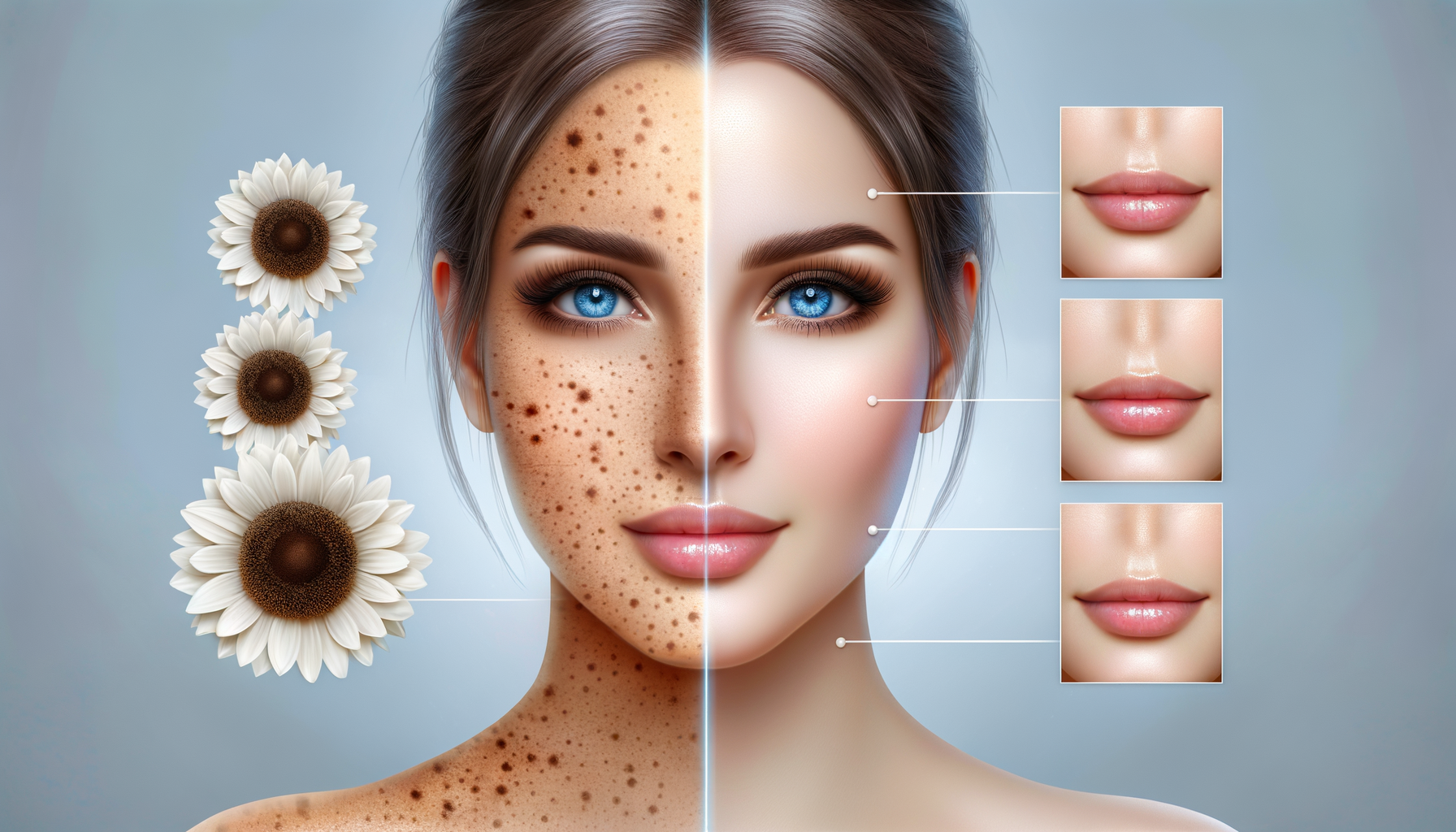Understanding Dark Spots and Age Spots
Dark spots, also known as hyperpigmentation, are a common skin concern that can affect individuals of all ages and skin types. These spots occur when certain areas of the skin produce more melanin than usual, often as a result of sun exposure, hormonal changes, or skin injuries. Age spots, a type of dark spot, typically appear as flat, brown, gray, or black spots on the skin, most commonly on areas exposed to the sun, such as the face, hands, shoulders, and arms.
While dark spots are not harmful, they can be a cosmetic concern for many. Understanding the underlying causes can help in choosing the right treatment. Factors such as genetics, lifestyle, and environmental exposure play significant roles in the development of these spots. By recognizing these factors, individuals can take proactive steps to prevent further pigmentation.
In summary, dark and age spots are a natural part of the skin’s aging process, but they can be managed and minimized with the right care and attention. Identifying the triggers and adopting preventive measures can significantly reduce their appearance.
Effective Ingredients for Dark Spot Removal
When it comes to treating dark spots, certain ingredients have proven to be particularly effective. These ingredients work by inhibiting melanin production, exfoliating the skin, and promoting cell turnover. Here are some of the most renowned ingredients:
- Vitamin C: Known for its brightening properties, Vitamin C can help lighten dark spots and even out skin tone.
- Niacinamide: This form of Vitamin B3 reduces inflammation and can help fade dark spots over time.
- Retinoids: These vitamin A derivatives accelerate cell turnover, helping to fade dark spots and improve skin texture.
- Alpha Hydroxy Acids (AHAs): AHAs exfoliate the skin, removing dead skin cells and revealing fresher, more even-toned skin underneath.
Incorporating these ingredients into your skincare routine can significantly improve the appearance of dark spots. However, it’s crucial to introduce them gradually and consult with a dermatologist, especially if you have sensitive skin.
Professional Treatments for Stubborn Spots
For those seeking more immediate results, professional treatments may be a viable option. Dermatologists offer a range of procedures that can effectively reduce or eliminate dark spots. Some popular treatments include:
- Laser Therapy: This treatment targets melanin in the skin, breaking it down and reducing the appearance of dark spots.
- Chemical Peels: By applying a chemical solution to the skin, this treatment exfoliates the surface, revealing new, less pigmented skin.
- Microdermabrasion: A minimally invasive procedure that uses a special applicator to gently sand away the thick outer layer of the skin, improving tone and texture.
While professional treatments can offer significant improvements, they often come with higher costs and potential side effects. It’s essential to discuss these options with a qualified dermatologist to determine the most suitable approach for your skin type and condition.
Home Remedies and Natural Solutions
For those who prefer a more natural approach, several home remedies can help lighten dark spots over time. While these methods may not offer immediate results, they can be effective with consistent use:
- Lemon Juice: The natural bleaching properties of lemon juice can help lighten dark spots. Apply fresh lemon juice to the spots and leave it on for about 10 minutes before rinsing.
- Aloe Vera: Known for its soothing properties, aloe vera can also help reduce pigmentation when applied regularly.
- Apple Cider Vinegar: The acetic acid in apple cider vinegar may help lighten pigmentation. Mix with water and apply to dark spots with a cotton ball.
While natural remedies are generally safe, it’s advisable to perform a patch test to ensure there are no adverse reactions. Consistency is key, and results may vary based on individual skin types and the severity of the spots.
Preventive Measures and Lifestyle Changes
Prevention is often the best treatment when it comes to dark spots. By incorporating certain lifestyle changes and preventive measures, you can minimize the risk of developing new spots:
- Sun Protection: Regular use of sunscreen with a high SPF can protect against UV-induced pigmentation.
- Healthy Diet: A diet rich in antioxidants can promote skin health and reduce the risk of pigmentation.
- Avoid Picking at Skin: Picking or scratching at blemishes can lead to post-inflammatory hyperpigmentation.
By adopting these habits, you can not only prevent dark spots but also maintain overall skin health. Remember, a proactive approach is crucial in managing and reducing the appearance of facial age spots.








